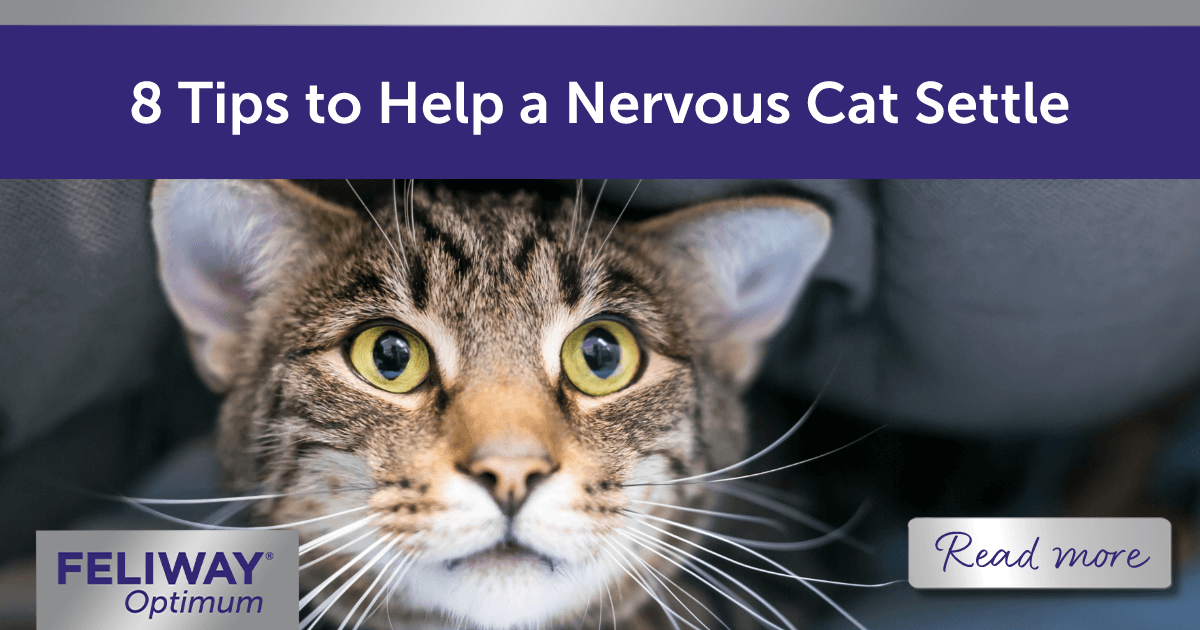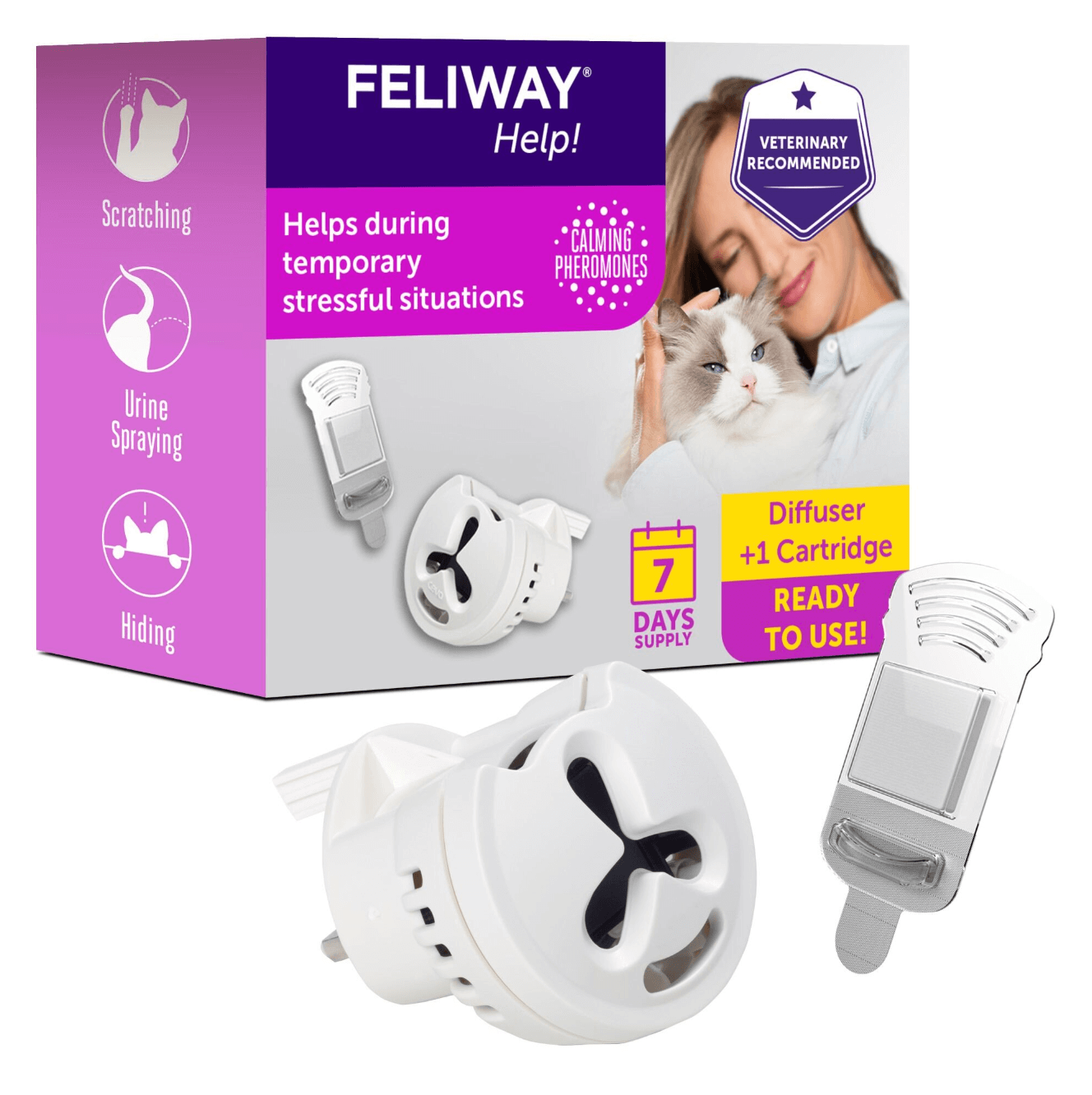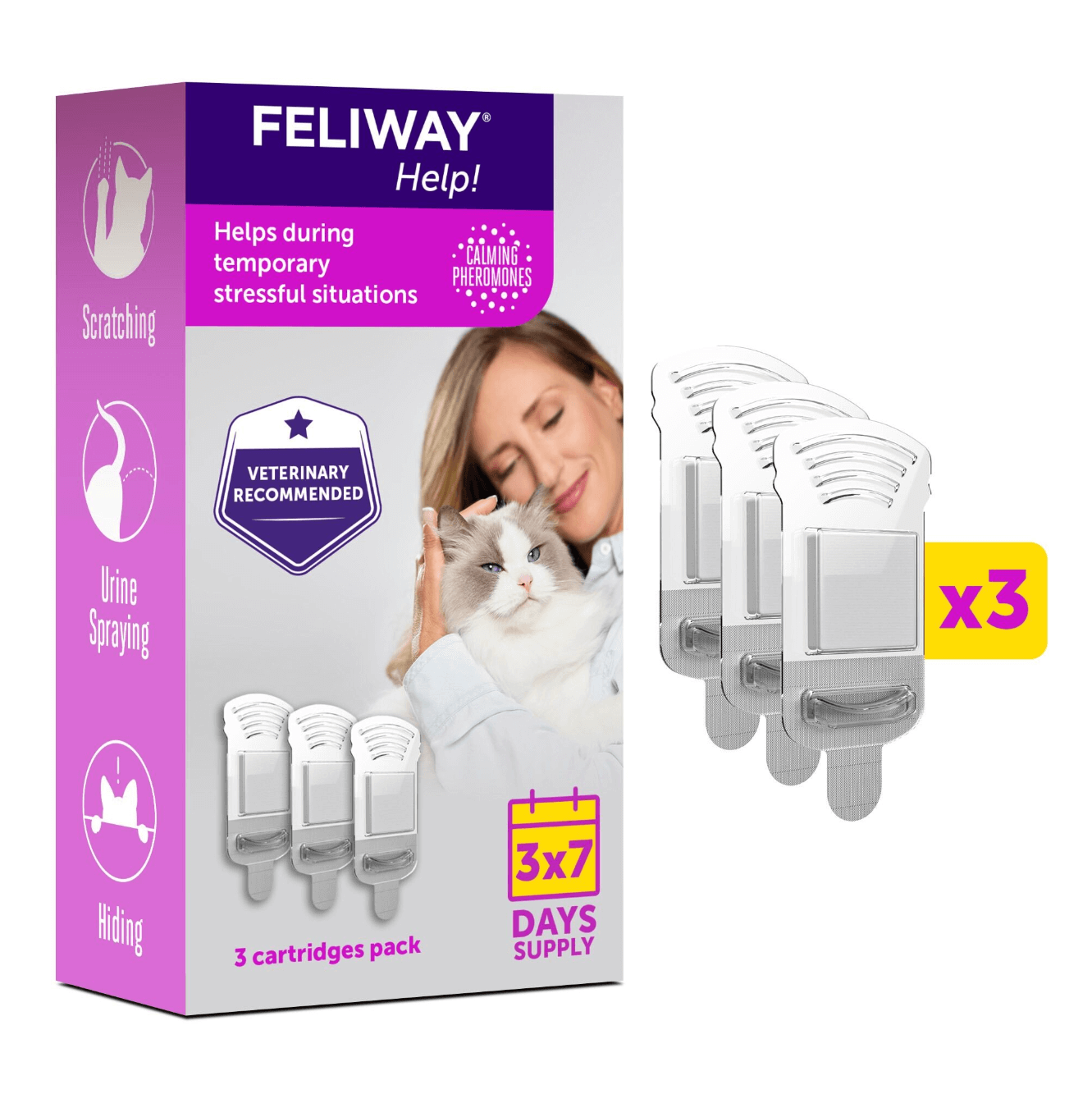
8 Tips to Help a Nervous Cat Settle
Just like us humans, sometimes our furry friends can get nervous. As a pet parent, it’s important to know the signs of nervous cat behaviour to look out for. Being able to identify why your cat might be nervous can help you take the necessary steps to ease their anxiety. Helping your cat feel less nervous is not only beneficial for their well-being, but it can also help strengthen your bond with them.
In this blog, we’ll offer advice on how to help a nervous cat so that you can understand why your kitty may be showing signs that they are feeling nervous or anxious. Each of our 8 tips can help with your cat’s nervous behaviour by making them feel safer and more comfortable in their home.
But first, let’s explore the signs you can look out for that can help you to see if your cat is feeling nervous, and what the causes may be.
Signs of Nervous Cat Behaviour
Nervous cat signs can often be detected through their behaviour. If you notice that your feline companion has been acting out of sorts, it may be because they’re feeling nervous about something. As well as behaviour, you can also identify your cat’s nervous demeanour through physical signs.
Behavioural Signs
-
Hiding away in safe spaces
-
Eating less or more than usual
-
Becoming restless
-
Exhibiting destructive behaviour
Physical Signs
-
Dilated pupils
-
Their tail is tucked or swishing from side to side
-
Looking around a lot
-
Freezing in a lowered or crouched position

What Causes Nervous Behaviour in Cats?
Understanding the signs of anxiety in cats is a great start, but to help your cat feel less nervous, it’s important to know what’s causing these feelings. When trying to help your cat, it’s also important to note that each cat is an individual, and they all respond to situations differently.
When considering how to help a scared cat, think about whether any of the following situations apply to them:
-
Changes in environment – Sudden changes in a cat’s environment, such as a new home, family member, or routine, can lead them to display signs of nervousness and anxiety. Loud noises such as construction or large gatherings can also cause anxious feelings for cats.
-
Past negative experiences – Many cats, especially if they have been adopted, may have had past experiences that can make them feel uneasy. For example, if a cat has had a negative experience with a stranger, going forward they can perceive strangers as a potential threat.
-
Health issues – Problems with a cat’s health can cause discomfort and may result in your cat being more nervous than usual. For older cats, changes in cognition and age-related illnesses can also cause nervousness. Remember to always consult a vet if you notice sudden changes in your cat’s behaviour as it could be due to an unknown health issue.
-
Lack of socialisation – If your cat has not been properly socialised as a kitten, they can be more anxious and fearful about new experiences.
-
Personality traits – As mentioned previously, all cats are different. Therefore, some may be more naturally anxious or timid than others.

How to Calm a Nervous Cat?
If you’re thinking about how to help settle a nervous cat, there are many things you can try to make them feel more comfortable. Giving your cat space to feel safe is important, as it helps them feel in control, which in turn makes them feel more secure and confident.
Some of the things you can do to help calm your anxious cat include:
1. Create a Safe Space
Set up a quiet and secluded area where your cat can retreat to and feel safe. This safe space should be somewhere they can go without being disturbed, helping them to feel protected from what’s making them nervous. Having this space in a separate room or cosy corner with a blanket and some toys can also increase your kitty’s comfort.
If you have the option, providing your cat with a choice of places to access can also help them feel more secure. Setting up hiding spots like boxes or cat trees with enclosed spaces allows them to decide where they feel most comfortable.
2. Gradual Introductions
If you have a new cat, introduce them to their new environment gradually. Start with one room, and once they have become familiar with it, move on to the next.
When introducing cats to new rooms, people or other cats, it’s important to go at a pace that makes them the most comfortable. During this time, keep the number of visitors to a minimum to avoid overwhelming them. Give your cat their space and allow them to come to you when they want to.

3. Keep a Consistent Routine
Keeping a regular daily schedule, such as consistent feeding, playing and grooming times can help your cat feel more secure. They love the predictability of a daily routine and can get unsettled when there are too many unexpected things happening. However, don’t feel like you must keep everything the same. Switching toys and treats can be a great form of physical and mental enrichment for your cat.
4. Use Positive Reinforcement
Use treats, praise, and rewards that your cat likes as a way of reinforcing your cat's calm behaviour. A great treat option for helping ease nervous cat behaviour is Happy Snack by FELIWAY. It’s a delicious, creamy and lickable treat that’s a great calming reward! Happy Snack by FELIWAY can be enjoyed in many ways, including placed in an empty bowl for your cat to enjoy at their own pace, or straight from the stick as a bonding experience.
5. Environmental Enrichment
Including playtime sessions in your cat’s daily routine is a great way to ease nervous behaviour. These positive experiences with you can help your cat to feel more confident. When playing, make sure your cat has a good number of toys and scratching surfaces. There are many scratching post options available for them to explore!
Music has also been found to reduce cats' stress levels and is a great form of enrichment. Our FELIWAY playlist has been specially created to help cats feel calmer. With a range of music, have a listen with your furry friend and see if any songs help them relax.

6. Try FELIWAY
Our FELIWAY pheromone products are proven to help reduce nervous cat behaviour by sending calming messages that have been specially designed to soothe cats. FELIWAY Optimum is an easy plug-in diffuser with our most advanced pheromone that you can use to help your cat feel more reassured and secure in your home. Plug it in where your cat spends most of their time and let them experience enhanced serenity.
7. Address Any Health Issues
Make sure to check that your cat is in good health, as medical issues can contribute to a cat being nervous in general. Cats should have at least yearly health checks, but as they age, twice yearly is recommended. However, it’s important to take them for a checkup in between their routine ones if you notice any changes in their behaviour.
8. Be Patient and Understanding
Be sure to never punish a nervous cat. This can have many negative effects, such as making them feel more insecure, which affects the human-cat bond. Having patience and giving them space is very important when easing a cat’s nerves. Understand that it may take time for your cat to feel comfortable. By paying attention to your cat's behaviour and body language, you’ll be able to better understand their needs and responses.
For more tips on how to help a nervous cat, be sure to explore our other articles online. Or to receive the latest news straight into your inbox, sign up to our newsletter, and we’ll keep you in the loop with all the latest FELIWAY guides and info.





































